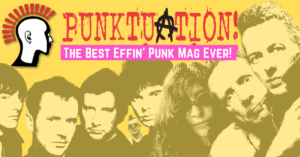A key influence on many of the 1977 generation, Bowie offered bands like the Sex Pistols, Siouxsie and the Banshees, and Joy Division an escape from the drabness of ’70s Britain.
John Lydon marked David Bowie’s January 2016 passing by posting to his website a video of Cygnet Committee. The 1969 track sees Bowie still in psychedelic folk-rock mode, but with its dig at hippies and their ‘slack attitude,’ some of the ground for the first wave of UK punk was already starting to be laid.
And yet, with his shock of orange hair and capacity to shock, it might be surprising to find the former Johnny Rotten wasn’t the main Bowie fan in the Sex Pistols camp. One of the frontrunners for that honour was Sid Vicious, who would go to parties dressed up as Bowie’s Ziggy Stardust creation – spending hours beforehand to get the makeup across his face and glitter in his hair just right.

“Sid was such a Bowie fan,” Lydon recalled. “That was what was so odd for him, when he adopted the Ramones image, because that was two steps down for him. He was an absolute Bowie fan of the highest order.”
Not many those associated with glam rock got a free pass in the punk era, but Bowie’s transition from psychedelic folk-rock to harder, heavier and generally spikier sounds saw him respected and guaranteed him safe passage – much to the surprise of Mick Ronson, Bowie’s early ’70s guitar foil.
“It was flattering,” he told Rave-Up fanzine’s Devorah Ostrov in 1983. “I thought, ‘Whoa! How did I manage to get by that one?’ It was a really nice thing for people to say. I was really thankful. I was really glad that the younger people didn’t just pass me up as being a ‘boring old guitar player’ – I don’t think I am, y’know.”

Sid was such a Bowie fan. That was what was so odd for him when he adopted the Ramones image because that was two steps down for him. He was an absolute Bowie fan of the highest order.” John Lydon
Tweet
It all sounds better on a stolen guitar
Bowie was so prolific in the ’70s that the ten years from 1970 saw him release 11 genre-hopping studio albums, with not a dud among them. In fact, by the time key early UK punk records from The Damned, The Clash and the Sex Pistols came out in 1977, Bowie had passed from Young Americans’ plastic soul to the Krautrock-influenced funk of Station to Station and was midway through his ‘Berlin’ trilogy.
But if the source of Ronson’s flattery can be traced anywhere, it’s to Ziggy Stardust and the Spiders From Mars, the 1972 album of spikey guitar pop that’s generally agreed to be Bowie’s best. The accompanying tour was seen by everybody from Buzzcocks‘ Steve Diggle to Don Letts to Subway Sect’s Vic Goddard, the latter saying: “Hang On To Yourself is the track that became punk rock.”

Someone who really took that song to heart, and had more to show than most from Bowie’s July 1973 ‘farewell’ performance at London’s Hammersmith Odeon, was Steve Jones. The Sex Pistols guitarist, and self-confessed huge Bowie fan, hosts the Jonesy’s Jukebox show for California radio station KLOS and in 2016 his guests included Woody Woodmansey.
“After the first [Hammersmith Odeon] show I went in there and stole a bunch of your gear,” he told The Spiders From Mars drummer. “I think I took a couple of your cymbals – a couple of the top ones, I nicked them, and I got the bass player’s amp. But who really took the brunt of it was whoever was recording it with all them Neumann mikes.”

Later that same year Jones’ radio show guests included Bowie’s pianist Mike Garson. “Mick Ronson, he’s like my favourite guitar player of all time, and he was such a great arranger too,” he told him. Regaling Garson with the equipment story, he quoted from Hang On To Yourself: “He says it in the lyrics – ‘sounds better on a stolen guitar’ – and that went to my head. I said to myself, ‘If he says that, I’m going to make his dream come true’.”
See the stars come out at night
Another of Bowie’s early ’70s albums was the covers album Pinups, which collected his versions of songs by punk precursors like The Kinks, The Who and Pretty Things. But it wasn’t just his own albums that laid the groundwork for the first UK punks.
In the summer of 1972 Bowie and Ronson were in London’s Trident Studios with Lou Reed to produce what would become the surprise smash hit Transformer. The album took Bowie’s adoration with Reed’s music to new heights.
He had been covering The Velvet Underground since 1967 – even before their debut was released in the UK, thanks to his manager returning from New York with an early acetate pressing of The Velvet Underground and Nico. Transformer’s then-controversial treatments of drug use, prostitution and sexual identity would continue Bowie’s walk on the wild side.
“He says it in the lyrics – ‘sounds better on a stolen guitar’ – and that went to my head. I said to myself, ‘If he says that, I’m going to make his dream come true’.” Steve Jones
Tweet
He also played a key part in Iggy and the Stooges’ proto-punk cornerstone ‘Raw Power‘, which was released five months before Bowie’s 1973 Hammersmith Odeon show.
It’s hard to imagine any punk listening to it in the years leading up to 1977 (or since for that matter) and not wanting to be Search and Destroy’s ‘street-walking cheetah with a hide full of napalm’. It probably entered the mind of uber Bowie fan Sid Vicious, whose recording of the song would be posthumously released on the ‘Sid Sings‘ album.

Despite the classic status it now enjoys, Raw Power had a fraught gestation. The band’s management voiced their displeasure with the recordings, which only saw the light of day after Bowie took the tapes to an LA studio and remixed seven of the eight songs (Iggy Pop insisted his own mix of Search and Destroy be kept).
“The truth is that ‘Raw Power‘ would never have been released had it not been for Bowie,” Stooges guitarist James Williamson told The Guardian in 2010.

It wasn’t the only time David Bowie rescued Iggy. A few years after ‘Raw Power‘ came out he took Iggy off to Berlin, where they mixed The Idiot and recorded Lust for Life, both released in 1977.
“He resurrected me. The friendship was basically that this guy salvaged me from certain professional and maybe personal annihilation – simple as that,” Iggy said to The New York Times, explaining their relationship shortly after Bowie’s death.
“He (Bowie) resurrected me. The friendship was basically that this guy salvaged me from certain professional and maybe personal annihilation – simple as that,” Iggy Pop
Tweet
Lou Reed and Iggy weren’t the only pre-punk icons David Bowie supported. Mott The Hoople, an obsession of The Clash’s Mick Jones, were on the verge of splitting up in 1972 when Bowie gifted them ‘All The Young Dudes‘. The song peaked at number three in the UK charts and remains their best-known tune.
Waiting for a guide to come
Bowie’s early ’70s albums and proto-punk interactions with Lou Reed, Mott the Hoople, and Iggy and the Stooges mainlined his influence into the veins of most of the UK’s 1977 punk generation.
For the Bromley contingent of Billy Idol, Siouxsie Sioux and Steven Severin, “Bowie was this ruling god”, as another of their number, the novelist Hanif Kureishi, (author of The Buddha of Suburbia) put it. “He was a figurehead for us. He was feminine, extreme, dressed up.” Bowie was also something of a local South London hero to the group, living as he did at the time in neighbouring Beckenham.
“By the mid-70s there was a vacuum,” Siouxsie noted in Dylan Jones’ comprehensive David Bowie: A Life biography. “It was no coincidence that so many people involved in punk at the beginning had been inspired by him. Bowie was the catalyst who’d brought a lot of us, the so-called Bromley contingent, together. And out of that really small group of people, a lot happened, including Siouxsie and the Banshees.”

“It was no coincidence that so many people involved in punk at the beginning had been inspired by him. Bowie was the catalyst who’d brought a lot of us, the so-called Bromley contingent, together.” Siouxsie Sioux
Tweet
Before that happened, the Bromley contingent had a prime view of punk’s beginnings as followers of the Sex Pistols. They would even share some of that band’s notoriety in 1976 when Siouxsie and Severin appeared with them on the Today programme, where Steve Jones’ swearing at host Bill Grundy on live early evening television catapulted punk into the tabloid mainstream.
Numerous other punks would tip their respective hats to Bowie. “The guy was brilliant,” as The Damned’s Dave Vanian succinctly put it. The Clash would namecheck Bowie in the lyrics of their 1977 single ‘Clash City Rockers‘, while you don’t have to look too far for bands that covered Bowie’s own songs, among them post-punks like Bauhaus and the Au Pairs, whose version of ‘Repetition’ sits perfectly with their explorations of sexual politics. Meanwhile, The Cure not only covered his songs, but also include former Bowie guitarist Reeves Gabrels in their current line-up.
Another of the groups tuned into the sounds of David Bowie’s art decade was a new Manchester band that played their first gig supporting Buzzcocks on 29 May 1977. By then they’d abandoned their early moniker of Stiff Kittens and were known as Warsaw – referencing ‘Warszawa‘ from Bowie’s album Low. Finding there was already a London-based group going called Warsaw Pakt, they renamed themselves Joy Division.

Unsurprisingly, ‘Low’ was singer Ian Curtis’ favourite Bowie album. It also caught the ear of Paul Weller when he was in London club Dingwalls with Joe Strummer in 1977. “We couldn’t fucking believe the drum sound,” Weller recalled of the moment Sound and Vision came on. “Neither of us had heard anything like it. I loved that, and I loved the barroom piano on ‘Be My Wife‘, and all the crazy instrumentals.”

Another punk connection would come from David Bowie’s publicist at MainMan Cherry Vanilla who relocated to London in 1976, where an early version of The Police loaned her their services and equipment in exchange for £15 a night and the support spot on her tour.
Those dates would be The Police’s first live shows and included a 5 March show in 1977 at London’s legendary Roxy Club. After that Cherry signed up a new, more permanent line-up for her band, which released their first single ‘The Punk’ in September 1977.

Just another future song
David Bowie’s fingerprints were all over the ’70s and the first wave of UK punk was no exception, but it was – at least to a point – a two-way interaction. Keen to hear the new sounds of 1977, he asked producer Tony Visconti to help him get hold of The Stranglers’ ‘No More Heroes’ album, the ‘Complete Control’ single by The Clash and anything by The Damned before he left London for Switzerland.
Once the first UK punk bands had either split up or their sounds were mutating in new directions, Bowie was asked about punk rock in a 1980 interview.

“It was of vital necessity at the time,” he said. “Everything was again becoming complacent and … then these ragged-arse, little street muffins came along, with instruments they’d either stolen or got on hire-purchase, and said ‘no, we want to be superstars and we want to sing about the conditions that we know about. We can’t afford to go to rock concerts and see bands, so we’ll just sing about the neighbours and girls and the things we don’t want to do and places we don’t want to go’.”
It might be argued it was more than just that, but it’s also not a bad summation of what was driving that first wave of UK punk. Clearly Bowie himself was also a key influence on those early bands. He was, as Bromley contingent member and Generation X singer Billy Idol put it, “a giant on our scene”.
“It (punk) was of vital necessity at the time. Everything was again becoming complacent and then these ragged-arse, little street muffins came along, with instruments they’d either stolen or got on hire-purchase, and said ‘no, we want to be superstars.” David Bowie
Tweet
“David Bowie was a beacon of light to young people in Britain’s socially disturbed and turbulent economy of the early 1970s,” Billy Idol’s January 2016 statement on his passing stated. He went on. “He paved the way for punk rock as he took an uncompromising stance against the conservative viewpoint of much of the intelligentsia of the day, and whether it was for gay rights or a fight for artistic freedom, or the right to state your case about the world, Bowie’s music led the way.”
Need More Amazing Punk Sh*t?
- 10 Punk Albums Celebrating Significant Anniversaries in 2021
- Lookout Records: The Rise and Fall of a Punk Rock Legend
- The Stranglers’ Black and White: The ‘Difficult’ Third Album?
- Grrrls Will Be Grrrls: The Women at the Birth of Punk!
- Frank Turner Celebrates Ten Years of ‘England Keep My Bones’
- Green Day Taunt Fans With New Music Teaser
- The Offspring ‘Monkey Around’ In New Video
- Exclusive Sneak-Peek Photos From The Professional’s Video Shoot!
- Misfits To Headline Aftershock Festival after My Chemical Romance Postpone their reunion tour.
An occasional writer on punk rock.
Click on Dom’s photo for more of his articles




 Did you know that we are 100% DIY? We run our own game. No one dictates to us, and no one drives what we can or cannot put on our pages – and this is how we plan to continue!
Did you know that we are 100% DIY? We run our own game. No one dictates to us, and no one drives what we can or cannot put on our pages – and this is how we plan to continue!
